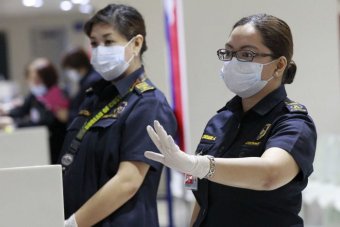The Philippines has confirmed its second case of the deadly Middle East Respiratory Syndrome (MERS) virus.
The virus was detected in a 36-year-old foreigner who showed symptoms of the disease after arriving in Manila on June 19 from Dubai.
The man was admitted to a government hospital on July 4 and was under observation, Health Ministry spokesman Lyndon Lee-suy said.
The man had also travelled to Saudi Arabia, the spokesman said.
Mr Lee-suy said that contact tracing was now underway to prevent the spread of the disease.
The first case discovered in the Philippines was in January. A Filipino nurse who worked in Saudi Arabia survived the disease.
Last month, Thailand confirmed its first case of MERS, becoming the fourth Asian country to register the deadly virus this year.
Thirty-one people have died from MERS in South Korea since the first case emerged there on May 20.
South Korea’s health ministry said 181 people have been diagnosed with the disease.
The country has tightened its quarantine restrictions, imposing jail sentences on those who defy anti-infection measures.
MERS was first identified in humans in Saudi Arabia in 2012 and the majority of cases have been in the Middle East.
Scientists are not sure of the origin of the virus, but several studies have linked it to camels.
The World Health Organisation described South Korea’s outbreak as a “wake-up call” but said it did not constitute a global emergency.
Reuters/AFP
MERS facts
- Middle East Respiratory Syndrome Coronavirus is known as MERS and MERS-CoV
- All recorded cases can be traced back to the Middle East
- Dromedary camels are thought to be the source of infection
- The virus can be spread person-to-person
- Symptoms include fever, cough, shortness of breath and breathing difficulties
- Severe cases can have a rapid onset of respiratory illness, like pneumonia
- There is no vaccine to prevent the virus
Source: health.gov.au

